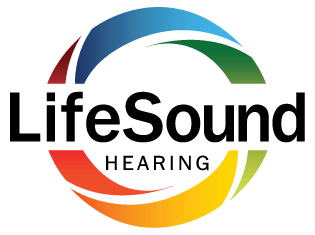When hearing aids aren’t enough, cochlear implants can unlock a new world of sound and connection. These little, surgically implanted devices are made for people with moderate to profound hearing loss who still strain to comprehend speech, even with hearing aids. So, who can benefit from a cochlear implant, and how do you know if you or a loved one is a good prospect? Let’s take a closer look!
Cochlear implants – what are they?
Different from hearing aids, which merely amplify sound, cochlear implants work by directly
stimulating the auditory nerve, bypassing the damaged areas of the inner ear. This allows the brain to process and comprehend auditory information with greater clarity.
Cochlear implants are composed of:
- An external sound processor, which is positioned behind the ear
- An internal receiver and electrode array, positioned underneath the skin and inside the cochlea during a surgical procedure
They work in unison to enhance hearing for individuals who get minimal or no help from conventional hearing aids
General candidacy guidelines
Cochlear implants are FDA-approved for both kids and adults. Characteristics of Suitable Candidates:
-
- Moderate to severe hearing loss in both ears
- Hearing aids are giving mediocere help, especially in increasing speech comprehension
- Enthusiasm and practical anticipations regarding the results of implants
- Dedication to follow-up care, including programming (called “mapping”) and auditory
recovery
Hearing hope for young people: implant technology for children
Timely placement of implants is essential for children, especially in regard to the development of their speech and language abilities. The FDA currently approves cochlear implants for:
-
-
- Kids as young as 9 months old, with profound hearing loss in both ears
- Ages 2 and up, with extreme to profound hearing loss, who get minimal help from hearing aids
- Children with progressive hearing loss, where hearing continues to decline over time
-
Early treatment helps ensure the best possible results for language acquisition, scholastic success, and social growth. Parents are urged to act quickly if they suspect hearing
loss.
Cochlear Implants for Adults
Adults of any age can benefit from cochlear implants if they:
-
-
- Experience extreme impairment in one or both ears
- Struggle to understand words and conversations, in spite of using advanced hearing devices
- Have a strong ambition to communicate and remain socially connected
- Are willing to participate in continuing hearing therapy and device programming
-
Some people lose hearing slowly over time, while others may lose it suddenly as a result of illness, trauma, or genetic conditions. In both situations, cochlear implants have the potential to significantly improve one’s life.
The assessment process
Qualification for a cochlear implant is assessed through a thorough exam by a multidisciplinary team of hearing specialists. Typically, this assessment involves:
-
-
- A comprehensive hearing test using and not using hearing aids
- Testing for speech recognition
- A hearing aid trial, if one hasn’t been completed recently
- Medical imaging (such as CT or MRI) to evaluate inner ear anatomy
- Consultation with an ENT specialist or cochlear implant surgeon
- Exploring goals, expected results, and information exchange needs
-
The team will team up to determine if a cochlear implant is the appropriate option and, if needed, lead you through the subsequent stages.
Bringing back sound to improve life connections
Cochlear implants aren’t for everybody, but for the right candidate, they can dramatically enhance communication, independence, and quality of life. The preliminary step, whether it is for yourself or your child, involves going through a customized evaluation with a skilled team of hearing care professionals.
If hearing aids aren’t helping as much as they used to, it might be time to look into cochlear implants.
If you think you or your child is a candidate for cochlear implants, schedule an appointment now!
Sources:.
– https://www.healthline.com/health/cochlear-implant.
– https://www.med.unc.edu/ent/adultcochlearimplant/cochlear-implants/cochlear-implant-.
evaluation-process/.
– https://www.cochlear.com/us/en/professionals/products-and-.
candidacy/candidacy/cochlear-implant.
– https://www.childrensent.com/blog/who-qualifies-for-pediatric-cochlear-implants-a-.
comprehensive-guide/.

